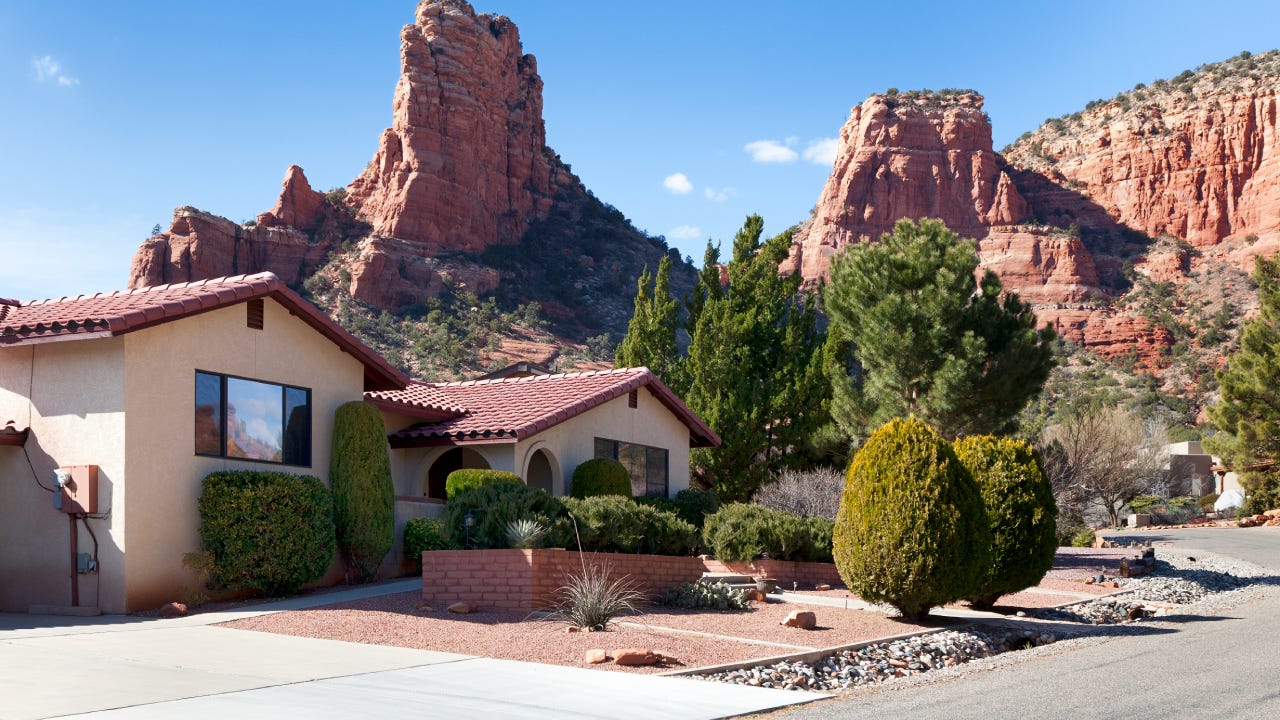Selling a house as-is in Arizona

Are you thinking of selling an Arizona home that has seen better days? Ideally, you could make key repairs and improvements and up your chances of commanding big bucks on the Arizona housing market. But there could be another option: selling the property as-is.
An as-is home sale means listing it in its existing condition, minus any fixes or renovations, and letting buyers know that what they see is what they get. To find out what selling a house as-is in Arizona involves, and whether it’s a good option for you, read on.
Can you sell your house as-is in Arizona?
Yes — but you should be very explicit about the fact that you don’t intend to make any repairs at all, and include an “as-is” clause in the real estate contract or purchase agreement to make sure it’s legally binding. (Also, you should not expect to bring in the same price you might if the house were in pristine condition.)
Selling as-is, in Arizona or any state, means listing your property in its current state without making any improvements or fixes, whether you are aware of the problem or not. The buyer in this type of transaction agrees to purchase the property in its existing condition. They should not ask you to, for instance, replace a broken window or a nonfunctioning water heater, even if these issues are identified during a home inspection.
However, just because you don’t intend to make any repairs does not mean you can intentionally hide or misrepresent the property’s condition. As-is sellers are still required to make the same legal disclosures to their buyer as any other seller. In Arizona, home sellers must disclose any information they know that affects the property’s value and desirability, such as structural damage, termites or a past fire or flood. The Arizona Association of Realtors offers a useful residential seller disclosure form that can help make sure your bases are covered.
Do I need an agent to sell my house as-is?
You are not required to hire a real estate agent to sell your home as-is. But opting to work with one who has experience in these types of transactions is a smart decision: An agent can help buyers see past the problems to see the home’s potential, as well as negotiating terms and pricing in a more skillful manner than an amateur might.
How much can I sell my house for as-is?
As-is sellers should generally anticipate lower offers than they might get if the home were move-in ready. After all, buyers already know upfront that they will need to invest more money in repairs once they take ownership.
However, in robust seller’s markets, the price difference between selling as-is and selling post-renovation may be narrower. And for a home in a prime or highly sought-after area, its condition may be less significant than the location itself.
How fast can I expect it to sell?
Negotiations regarding contract specifics are usually brief for as-is sales, if they occur at all, which can speed up the process and lead to a quicker sale. But a home in very poor condition may also sit on the market for longer than the typical home would.
According to Redfin data from May 2024, Arizona homes typically spent a long 51 days on the market before going into contract. As-is sellers can speed that timeline up considerably, though, by selling directly to one of the state’s many cash-homebuying companies. These outfits typically buy homes in any condition, no matter how rough, and can usually close the entire deal in a matter of a week or two.
Alternatives
If the idea of an as-is market sale with a real estate agent is giving you pause, there are alternative routes to consider:
- Delay the sale: If you’re not in a rush to sell, consider waiting a while. This will give you time to research your options and perhaps consult with a local contractor who can help you bring the home up to speed at a price and timeline you feel comfortable with.
- Make select repairs: You can also choose to make only the most essential repairs — say, fixing a hole in the roof or a crack in the foundation — and leave the more minor or cosmetic issues for the buyer. This might allow you to bring in a higher price while still selling as-is.
- Tap into your equity: If you have built significant equity in the property, you might even be able to finance a few upgrades with a home equity loan or line of credit (HELOC).
- Sell to a cash homebuyer: As noted above, companies that declare “we buy houses” will typically buy homes in any condition, with no need to make repairs or even clean up or haul away the trash. They will likely offer you a lower price, but in exchange you will a get a fast and easy sale.
Should you sell your house as-is in Arizona?
Selling a house is always complicated, and selling as-is can complicate things further. Here are some benefits and disadvantages to consider:
Pros
- Time savings: Not having to make repairs means not having to wait on contractors or other service providers, which means you can list your home faster.
- Cost savings: You will still have to pay closing costs and other sale-related expenses, but selling as-is lets you avoid spending money on repairs, renovations and cosmetic spruce-ups before you list.
- Less negotiation: It also means there’s no need for bargaining or lengthy back-and-forth conversations about repairs, and who will pay, which helps facilitate a smoother closing.
Cons
- Limited buyer pool: Most homebuyers probably aren’t looking for a project. The number of people interested in fixer-upper properties is smaller compared to the broader pool of potential buyers.
- Lower selling price: Buyers are not going to want to pay top dollar for a home they’re going to have to sink more money into once it becomes theirs. You can’t expect to sell an as-is property for the same amount it might fetch if it were move-in ready.
- Financing challenges: It’s possible that buyers might encounter difficulty securing a mortgage loan — or a homeowners insurance policy, which will be required by their lender — for a home in poor condition.
Bottom line
There’s a lot to think about when it comes to selling a home as-is in Arizona. While a swift sale may seem enticing, a home in less-than-ideal condition will not bring in the highest profits. Carefully consider the pros and cons of this decision, and if you decide to move ahead with it, enlist the help of a local Realtor who has experience with similar sales in your area.
FAQs
-
Like any homebuyer, as-is buyers have the option to conduct a home inspection to assess the property’s condition. For a home being sold in as-is condition, they almost certainly will choose to. As the seller, you also have the option to take the proactive step of having a prelisting inspection — being able to present an inspection report to buyers can instill trust and help the buyer feel more confident in their decision. But they will likely still choose to conduct their own inspection regardless.
-
You will very likely see a lower sale price for an as-is transaction than you would selling the same home in perfect condition. However, a lot depends on the home’s location and how extensive the problems are. Even if you pay a lot of money to fix everything up, a higher sale price is still not guaranteed.
-
As is the case in most states, Arizona home sellers are legally required to disclose any significant issues with the home to the buyer. Selling as-is does not absolve you from having to disclose relevant information about the property’s condition. The Arizona Association of Realtors’ property disclosure statement includes sections on building safety, environmental factors, utilities and more. In addition, if your property is part of a homeowners association, you will need to disclose information about the HOA’s fee structure and financial status.
Why we ask for feedback Your feedback helps us improve our content and services. It takes less than a minute to complete.
Your responses are anonymous and will only be used for improving our website.






